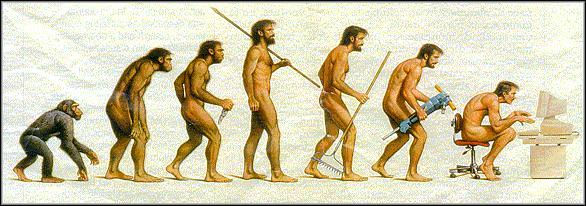Where Is My Mind?
 The Turing test is a proposal for a test of a machine's capability to demonstrate thought. A human judge engages in a natural language conversation with two other parties, one a human and the other a machine; if the judge cannot reliably tell which is which, then the machine is said to pass the test.
The Turing test is a proposal for a test of a machine's capability to demonstrate thought. A human judge engages in a natural language conversation with two other parties, one a human and the other a machine; if the judge cannot reliably tell which is which, then the machine is said to pass the test.The way I see it, there are two ways to build a computer that can pass this test. The first way is to understand each one of the brain’s functionality and implement it by software. This means we must fully comprehend each aspect of human thinking in order to copy these successfully and fool the judge that the computer he’s talking to is actually a human. I don’t know why, but it seems all the A.I. scientists are trying to go this way when it’s clear we will need a full understanding of human psychology, logic, emotions, humor, etc. Seems like passing a Turing test this way is centuries away.
The other method is to focus on how a single brain cell works and interact with other brain cells, and then simply scan a human brain in great detail and recreate the whole neural network in software code. This seems to me like a much easier task since we don’t actually have to understand how humans think. We already understand pretty well how a neuron works and the mechanism behind brain cells interaction, so I think it can be achieved in a few decades. One problem with this method is that it may be necessary to slice the brain to small pieces while scanning, meaning the physical scanned human will be killed, but I’m sure there will be plenty of volunteers. Think about it, moving from a carbon-based existence to a silicon-based implementation will make you almost immortal; no aging, no diseases, no car accidents, and you will always be able to backup your brain somewhere and restore it if needed. In addition to that you will have many extra bonuses like almost infinite number of virtual worlds to visit, lightning-fast thinking and more. I believe in a few decades, many people, myself included, will take this leap into virtual-only existence on a hard disk and live in a matrix-like world - probably on some Google hosting server :-)
While uploading the human society, will we take the opportunity to omit old “negative” human behaviors like aggression that was once necessary for human carbon-based biological evolution on Earth, in order to create a “better” human civilization? I don’t think a scanned human will agree that a good-behavior-only filter will be applied to his personality while uploading it because it won’t be exactly him anymore, so it seems like our new society will be just as good (and bad) as the current one. So what will we do with all this virtual aggression? How about nuking you, the original human society… The existence of a physical civilization outside of our Google server will jeopardize us virtual inhabitants (somebody can push the “off” button on the server), so it’s only a matter of time when we (the virtual people) will try and destroy you (the physical people). Since us virtual humans will control every computer in the world and will be able to make decisions and take actions in a matter of nanoseconds – I’m afraid that if you won’t agree to give up your physical existence and join us - you’re doomed. Sorry, get uploaded or be terminated. Resistance is futile.
~~~
p.s. Can the second guy on the moon gloat over the third tenor?











